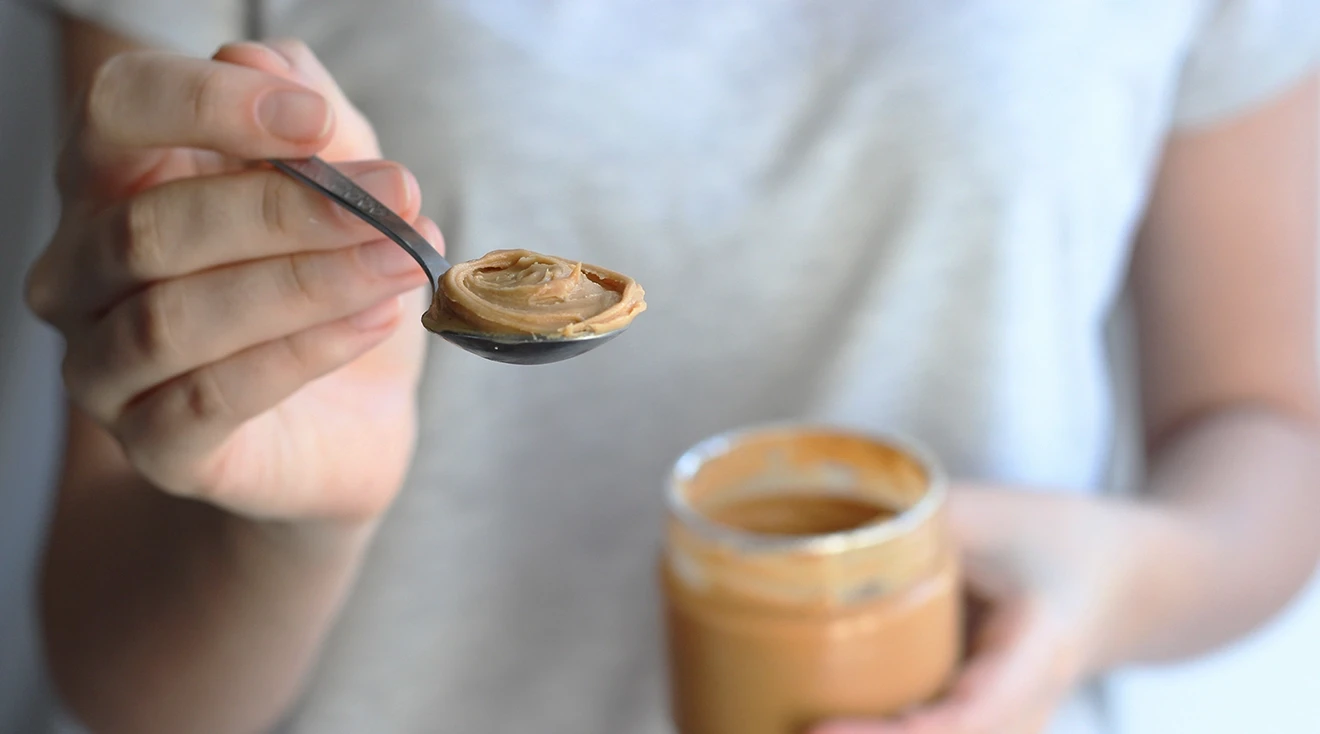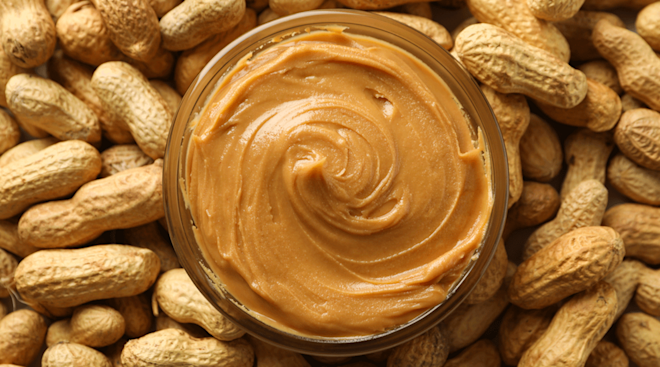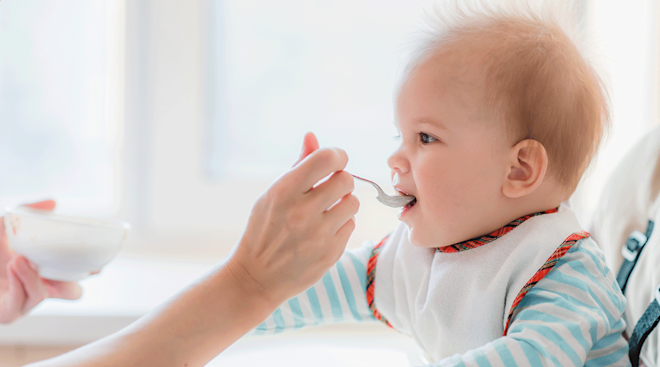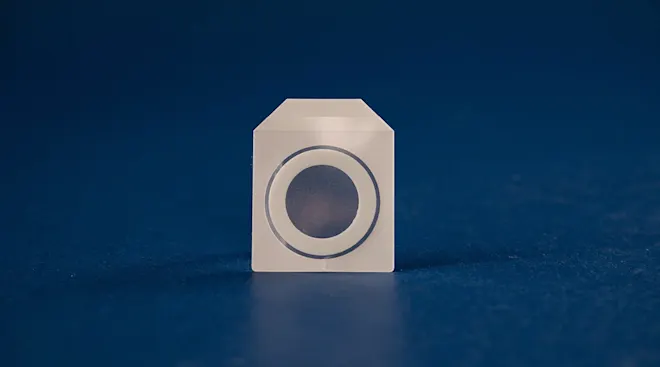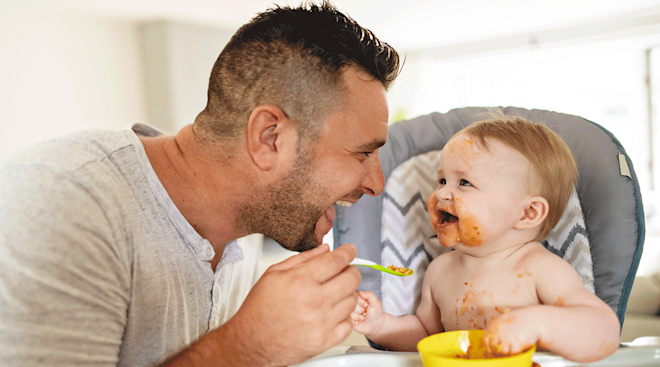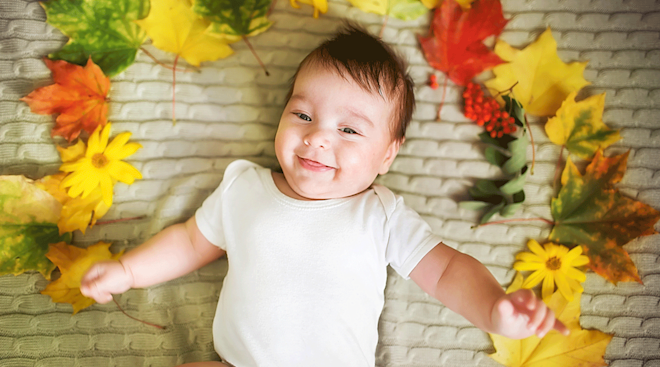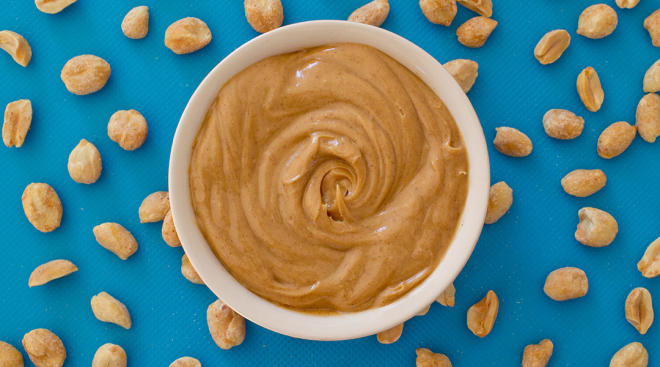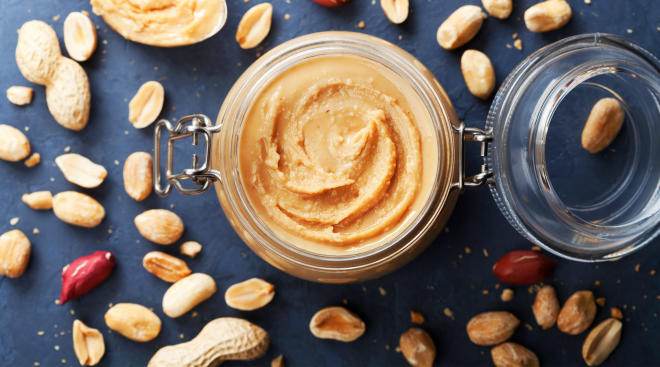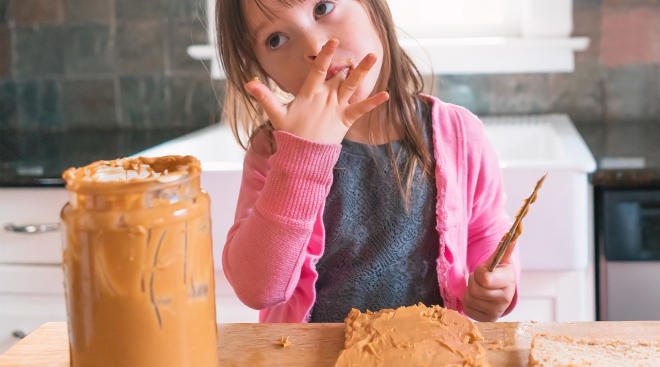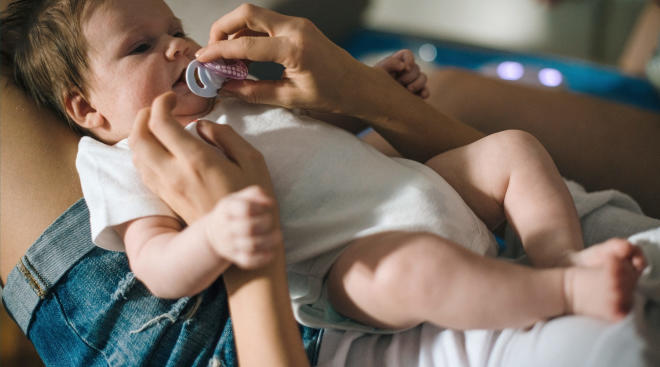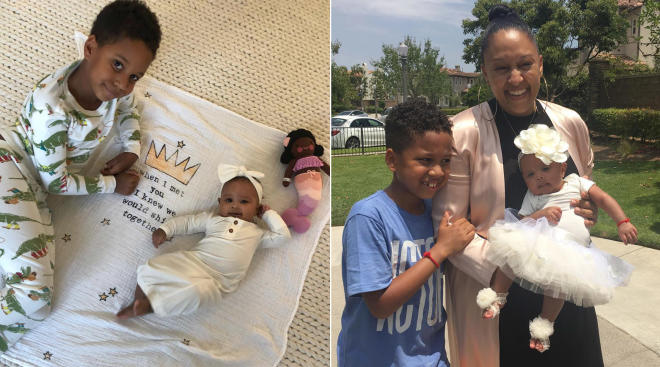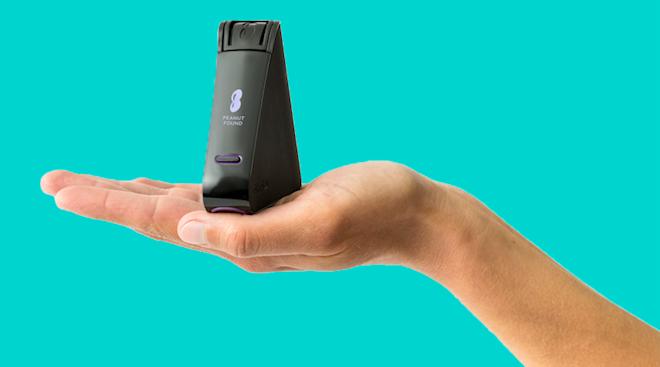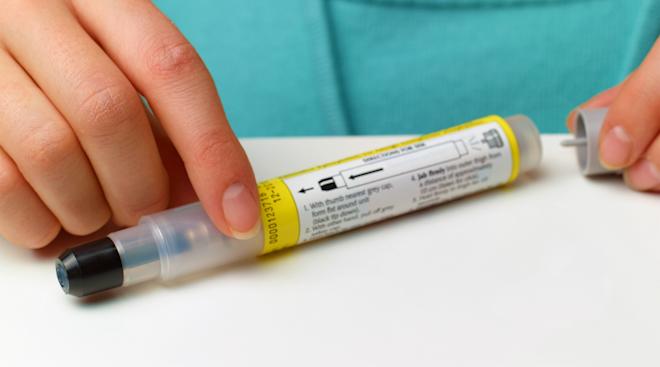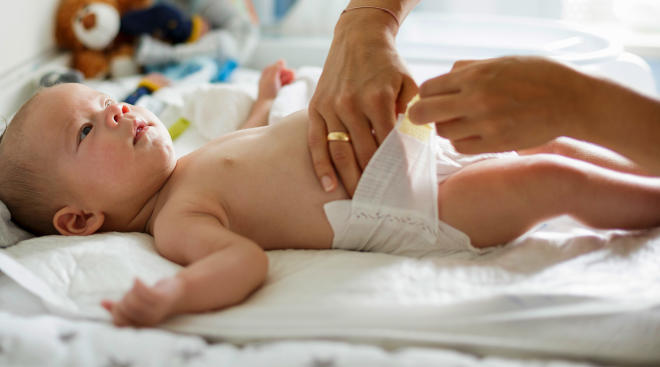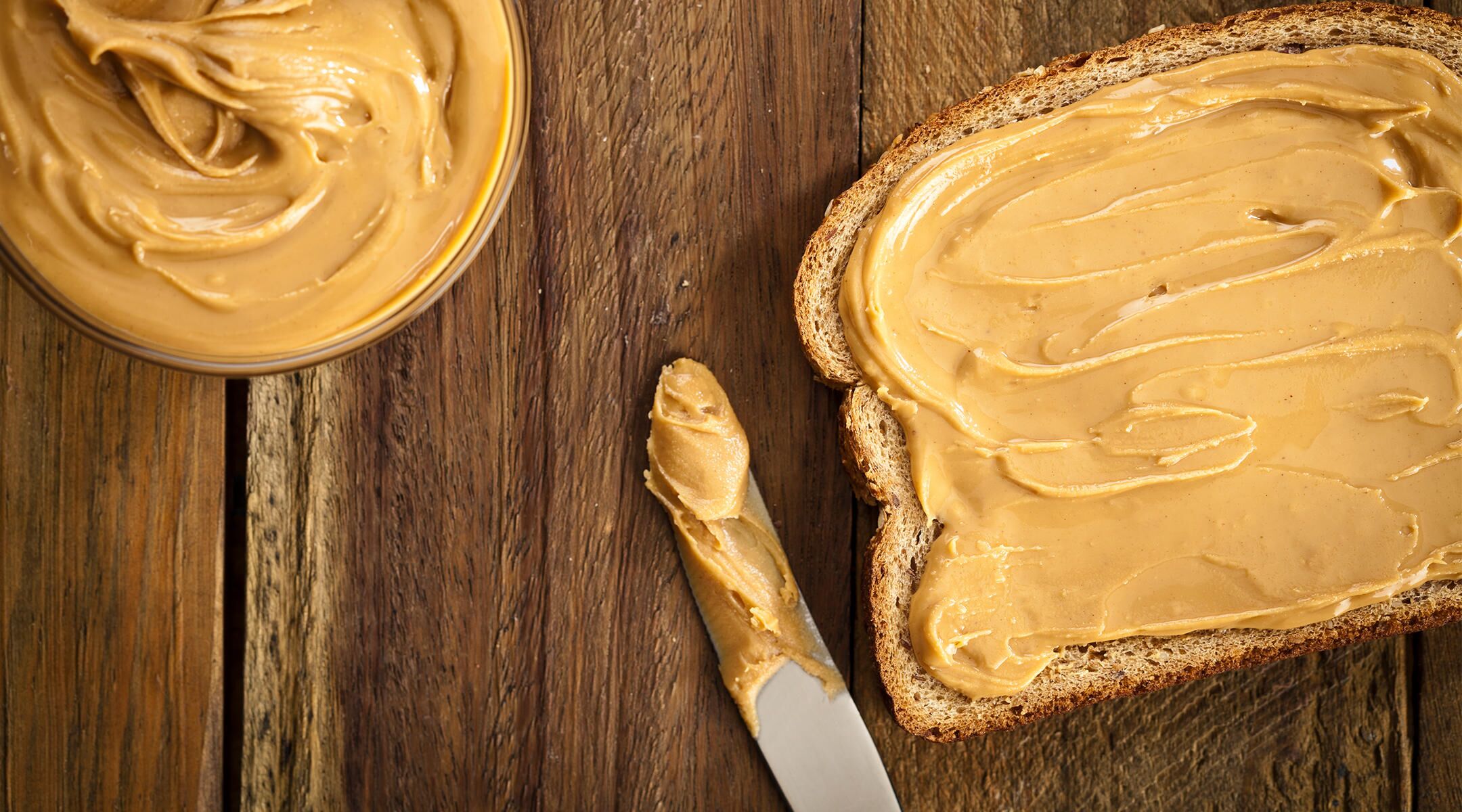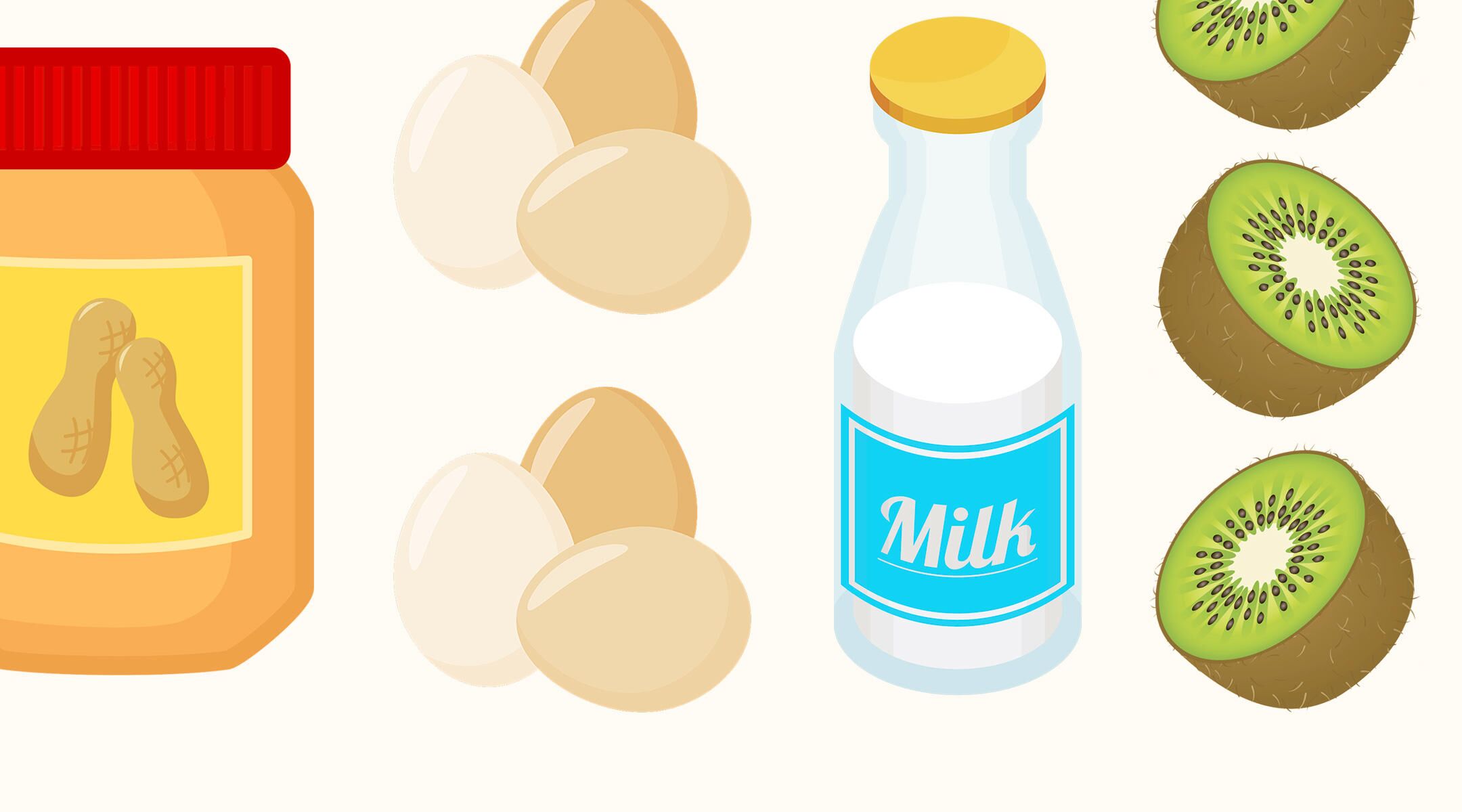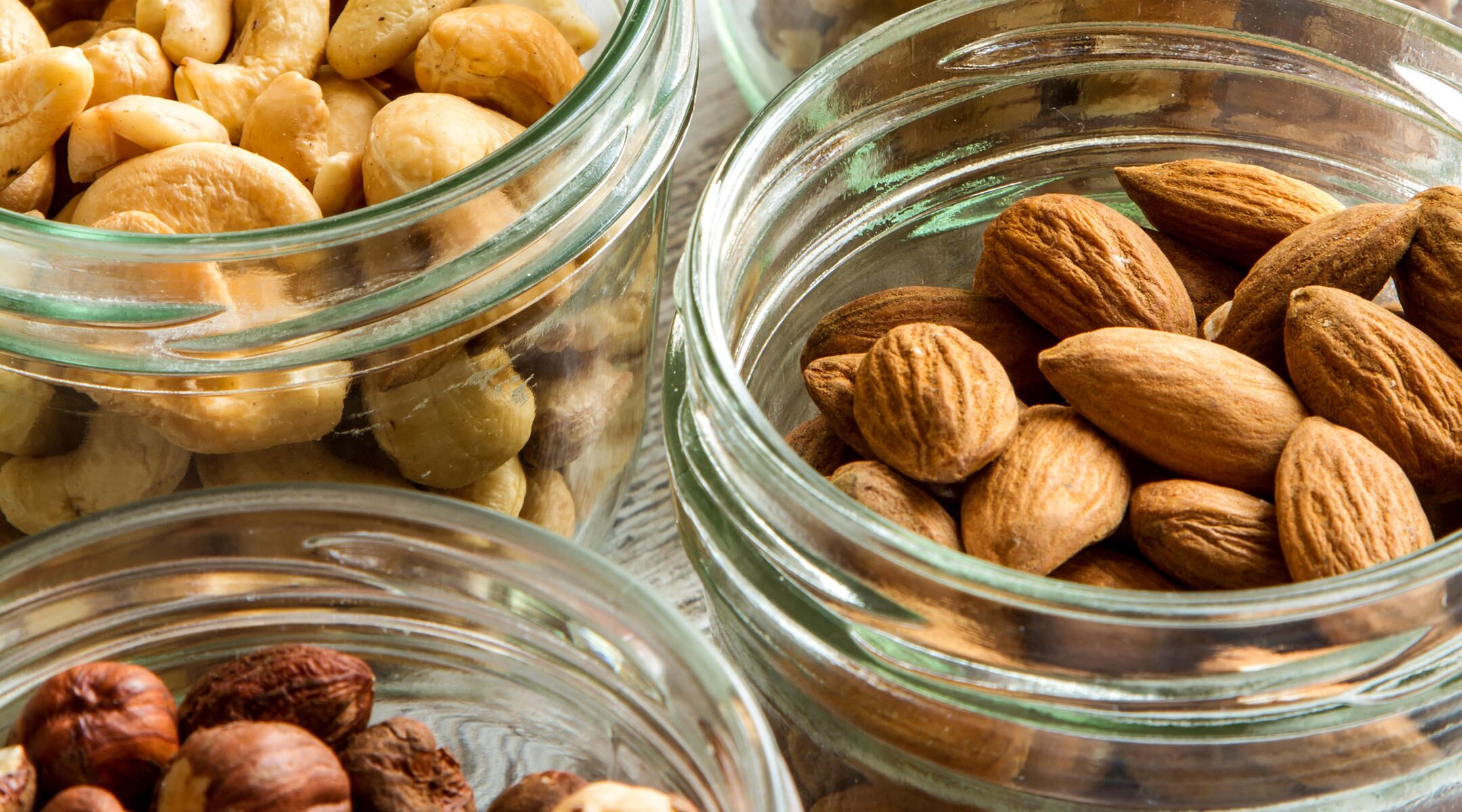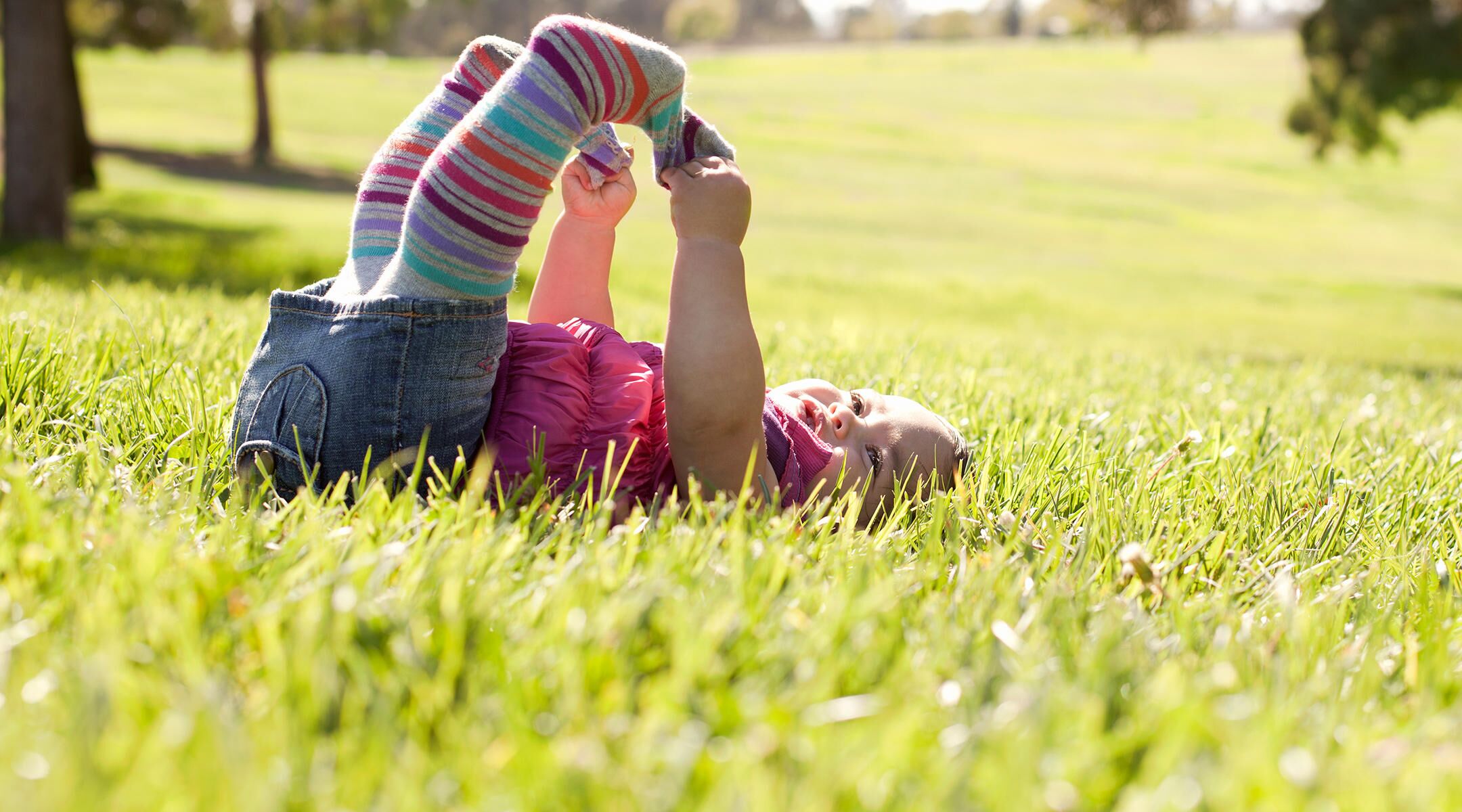When and How to Introduce Peanut Butter to Baby
Out of all the new foods you’ll introduce to baby, we’re betting nothing strikes as much fear into your heart as peanut butter. Sure, it’s a humble and delicious staple that’s probably in your pantry right now, but horror stories about babies with nut allergies have you seriously spooked.
We’re here to put your mind at ease: You can and should offer baby peanut butter when they start solid foods. Despite what we used to think about food allergies, newer research shows that giving baby common allergenic items early on can actually help prevent the development of food allergies.
All this to say that giving baby peanut butter is less scary than you may think. Here’s how to introduce peanut butter to baby, plus tips to make it a smooth (pun intended!) experience for everyone.
Babies can have peanut butter as soon as they begin showing an interest in solid foods and have the ability to eat other typical first solids like cereals and purees, says David Stukus, MD, a pediatrician in Columbus, Ohio. This will probably be around the time they’re between 4 and 6 months of age.
In other words, once baby has mastered swallowing mashed banana, it’s time to break out the peanut butter. And this is one of those rare times when you should do something just because you can: Experts now know that the benefits of introducing peanut butter early far outweigh the risks.
“We used to think that avoiding allergenic foods such as peanuts, egg, milk, wheat, soy and seafood would protect babies from developing food allergies,” says Stukus. “But large, well-conducted research studies have shown us the opposite is true.”
Stukus is talking largely about the Learning Early About Peanut Allergy (LEAP) study from 2015. When comparing the risk of peanut allergy among 6-year-olds, kids who ate peanut products consistently throughout childhood had a 70 to 86 percent lower risk compared to kids who entirely or mostly avoided peanut products. And a one time taste test isn’t what you’re going for here. Stukus says you should keep giving baby peanut butter as long as they’re not showing any signs of allergy—ideally three to four times per week—to maintain their exposure.
If your child has other allergies in infancy, your instinct may be to avoid all potentially risky foods. But Stephanie Leeds, MD, a pediatric food allergist at Yale New Haven Children Hospital, says that babies with risk factors, like moderate to severe eczema or other food allergies, should be evaluated for a peanut allergy early in life. Talk to your pediatrician to create an individualized plan for introducing peanut butter and other potentially allergenic foods.
If baby has other confirmed or suspected food allergies, they should be under the care of an allergist, who can advise you about best practices when it comes to introducing new foods. But otherwise, feel free to proceed with giving baby some peanut butter at their next meal.
If you’re just as worried about the choking hazard as you are about the allergy risk, there are simple ways to make the feeding safer. Start with one to two teaspoons and mix it with water or fruit puree so it has a similar consistency to what you’ve been giving baby already, advises Kenneth Paris, MD, MPH, a pediatric allergist at Children’s Hospital New Orleans. You can warm it up slightly too to further thin it out (but make sure it cools down before you offer it). Be sure to always use smooth peanut butter, not crunchy.
Paris says you can also use different forms of peanut protein to get baby some peanut exposure, as long as it’s developmentally appropriate for their age. Mix peanut powder into purees, yogurts or warm milk until you get the right consistency for feeding—or soak peanut puffs in water and offer them to baby one at a time.
Here are a few other tips for introducing peanut butter or other peanut products to baby:
- Wait for a day when baby is feeling well, so you don’t confuse signs of illness with signs of allergic reaction
- Give baby peanut butter for the first time at home, so you can watch them closely
- Save baby’s first taste for a time when they’re hungry
- Keep the serving size reasonable (two teaspoons or less), so they can comfortably eat the full serving
- Don’t offer other foods before or during that feeding that will fill them up or affect their appetite
- Keep it familiar and introduce one new flavor at a time. Mix peanut butter or peanut protein with either water or a favorite fruit puree that you know they’ll eat
One of the best things about this kitchen staple is how affordable and accessible it is, so don’t worry too much about buying an all-natural, organic (read: expensive) peanut butter for baby. The most important thing is that the peanut butter is smooth.
It also helps if the peanut butter is thin rather than thick. Many natural-style peanut butters have a thinner consistency—but that doesn’t mean you can’t buy regular peanut butter and thin it out with water or milk.
The final rule of thumb? “Make sure that the peanut product you’ve chosen doesn’t contain any other nuts or ingredients that seem unusual to you,” says Paris. Remember, you want to introduce one new food at a time.
So you’re ready to introduce peanut butter? Baby will most likely tolerate it just fine, but it’s important to know how to recognize the signs of peanut allergy in babies just in case.
Peanut is among the most common food allergens, affecting between 1 and 2 percent of children, says Stukus. And peanut allergies are also becoming more common. Between 2010 and 2017, the number of kids with peanut allergies increased more than 20 percent, according to the American College of Allergy, Asthma & Immunology (ACAAI).
This information can feel alarming, but it shouldn’t stop you from giving baby peanut butter. According to Leeds, anaphylaxis is rare with a first exposure to peanut butter in babies. Signs of allergic reaction in babies often involve the skin—think hives and swelling—but can also appear as sneezing, coughing, wheezing, vomiting and irritability.
If this happens to baby, it’ll happen quickly: “True allergic reactions are immediate, meaning that they typically happen within minutes to two hours after ingestion of a food,” says Leeds.
If baby does have an allergic reaction to peanut butter, your next steps depend on whether the reaction is mild (hives, runny nose or sneezing) or severe (shortness of breath, trouble swallowing and oral swelling).
“If baby has mild symptoms of an allergic reaction, you can treat them with over-the-counter oral antihistamines,” says Leeds. “But if baby has severe symptoms of an allergic reaction, you should use an epinephrine auto-injector.”
If you don’t have an EpiPen already at home, Leeds says you’ll need to call 911 or seek emergency medical care. Parents of babies with a history of allergies may want to work with their pediatrician to create a proactive plan so they know exactly what to do if baby shows signs of an allergy with them or in the presence of another caregiver.
Please note: The Bump and the materials and information it contains are not intended to, and do not constitute, medical or other health advice or diagnosis and should not be used as such. You should always consult with a qualified physician or health professional about your specific circumstances.
Plus, more from The Bump:
Kenneth Paris, MD, MPH, is a pediatric allergist at Children's Hospital New Orleans and a professor of pediatrics at the Louisiana State University School of Medicine, where he also received his medical degree.
David Stukus, MD, is an allergist and spokesperson for the American College of Allergy, Asthma and Immunology. He also serves as a professor of clinical pediatrics at Nationwide Children’s Hospital in Columbus, Ohio. He earned his medical degree from the University of Pittsburgh School of Medicine.
Stephanie Leeds, MD, is an assistant professor of pediatric allergy and immunology at Yale School of Medicine and a pediatric food allergist at Yale New Haven Children’s Hospital. She earned her medical degree from the University of Chicago.
Learn how we ensure the accuracy of our content through our editorial and medical review process.
Navigate forward to interact with the calendar and select a date. Press the question mark key to get the keyboard shortcuts for changing dates.

































